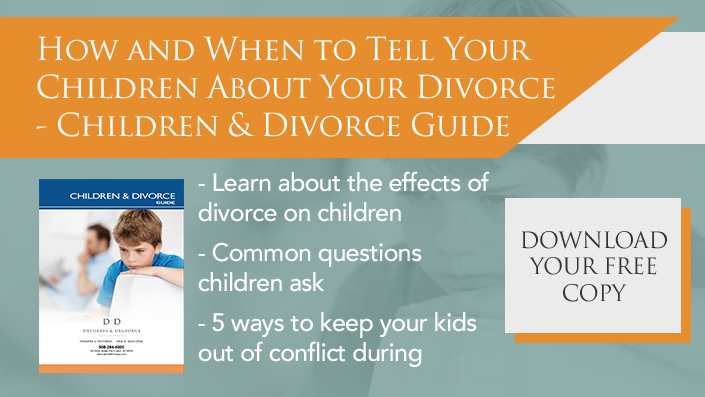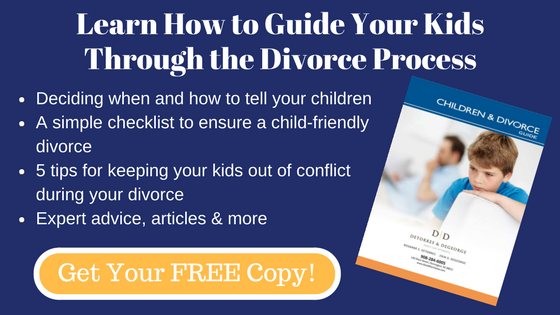Your child-support order specifies a set amount that is to be paid by one parent to the other, usually from the non-custodial parent to the custodial parent. NJ child support was created to ensure that the child can maintain a standard of living similar to that which he or she had during the marriage or relationship. There are often add-ons to the set child-support amount, such as medical expenses, dental and orthodontic costs, tuition, and school expenses.
Although these payments may be stated in your NJ child-support order, some parents find them confusing and may have questions as they’re filing for child support in NJ.
- Who is supposed to buy the child’s clothes? The custodial parent is generally responsible for purchasing most of the child’s wardrobe. Some custodial parents refuse to send clothing with the child on visitation, believing that the non-custodial parent should be responsible for all of the child’s needs during visitation. This is not how courts and NJ child-support laws view the matter. It is important to remember that clothing belongs to your child and clothes have to go back and forth.
- Who is supposed to pay for school supplies, lessons, sports fees, and other extracurricular activities? If your child-support order directs you to share school costs, then all costs associated with the school, including school sports, school supplies, uniforms, and any other expenses required by the school must be shared. If your NJ child-support order specifies that you are to share extracurricular costs, then this would include things like dance lessons, sports leagues, karate lessons, and so on. Many parents agree to share these costs even if the order does not specifically direct them to do so. Often, though, these expenses are considered to be included in the child support and therefore payable by the custodial parent.
How to calculate NJ child support
You’re probably now wondering how child support is calculated in New Jersey. In theory, calculating child support should be one of the most straightforward aspects of the divorce process. Child support in New Jersey is calculated pursuant to the Child Support Guidelines, so family law attorneys have a computer program that allows them to determine the appropriate amount of child support for a particular family. In calculating that number while filing for child support in NJ, the most important information is the gross income for each party, with additional considerations for the ages of the children, the parenting-time schedule, whether or not alimony is paid, and the cost of the children’s share of health-insurance premiums. While this may seem fairly clear-cut, many families who are unfamiliar with the family court system still have questions regarding the payment of child support, which include the following:
1. How do I pay my child-support obligation?
NJ child support can be paid in a number of ways, and your Marital Settlement Agreement should be clear on exactly how it will be paid in your particular case. For some families, it’s quite simple: They choose to handle child support between themselves, with the party who pays simply providing a check for the appropriate amount according to a set schedule. Others may wish to pay the child support via bank transfer. One of the most common methods is payment through the probation department via wage garnishment. Under this scenario, an order for support is sent to the employer of the person who is obligated to pay NJ child support. The employer is responsible for deducting the appropriate amount from the employee’s pay and sending the support to the probation department. The probation department then disburses the funds to the parent who is to receive the support. Parties in litigation often elect this option because it takes some of the responsibility off of the individuals themselves, as the employers and probation are primarily responsible for ensuring payment is made. Also, probation tracks all payments and disbursements, which eliminates any disputes between the parties about what has been paid or remains outstanding.
2. How long do I have to pay child support?
NJ child support must be paid until the children are emancipated, and the terms of emancipation should be included in your Marital Settlement Agreement. Generally, parties agree that children are emancipated upon (1) reaching age 18 or graduation from high school, unless they are enrolled in college full-time; (2) entry into the armed forces; (3) engaging in full-time employment, unless occurring during summer break from college; (4) marriage of the child; or, (5) completion of the child’s education. Many parties also choose to specify that the date of emancipation will not go beyond the child’s 23rd birthday. There are some instances when you may have to pay child support beyond these general provisions, however. The most likely scenario for that is when you have an adult child who suffers from a disability or illness that makes it unlikely that they will ever be able to be emancipated. In those situations, the parties often include in their settlement agreements another method or manner to support those children.
3. What happens to my child support when my child goes to college?
When children begin attending college, this is considered a change in circumstance that would be a basis to recalculate child support. Under NJ child-support laws, the Child Support Guidelines do not apply to college students, though some parties continue to use the guideline if the child remains residing at home with a parent and commutes to school. The appropriate amount of child support for a college student varies from child to child and requires that the parties present a budget of what that child’s needs are while they reside away from home.
If you have questions about NJ child-support laws or need help filing for child support in NJ, call DeTorres & DeGeorge to schedule a consultation with one of our attorneys to discuss your specific concerns.


 START LIVE CHAT
START LIVE CHAT











